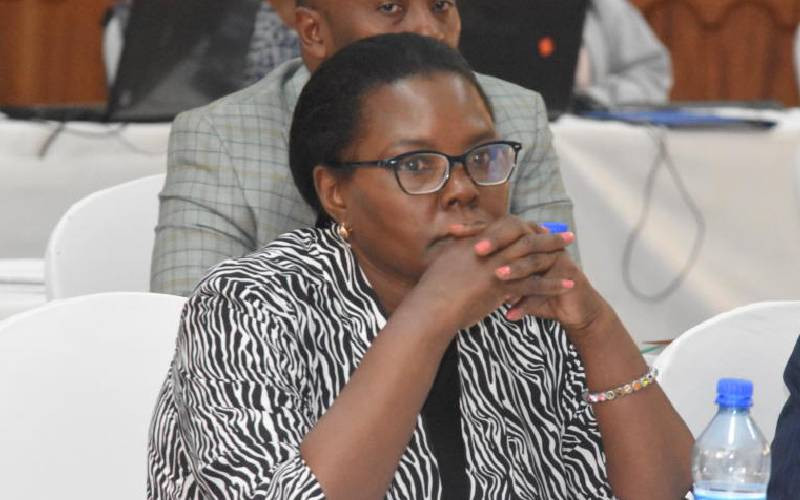×
The Standard e-Paper
Smart Minds Choose Us

Suspended electoral commissioner Irene Masit is mulling an appeal to the tribunal decision that recommended her sack following a two-month probe on her conduct.
Masit does not believe the decision reached by the tribunal chaired by Justice Aggrey Muchelule and handed over to President William Ruto on Monday was fair and just.